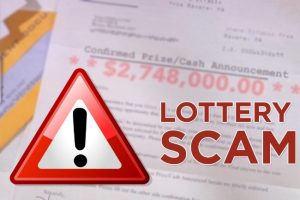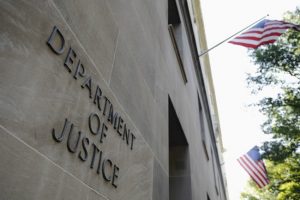 For some people, a lottery win could make all their dreams come true. People are attracted to play against the unpredictable lottery odds in the hope of becoming one of the jackpot winners. Unfortunately, many criminals have started to take advantage of the people’s blind faith in an attempt to accumulate a fortune. Stories about crime syndicates that are setting up fake lotteries to lull people with fake promises of windfall jackpots make the headlines almost every day.
For some people, a lottery win could make all their dreams come true. People are attracted to play against the unpredictable lottery odds in the hope of becoming one of the jackpot winners. Unfortunately, many criminals have started to take advantage of the people’s blind faith in an attempt to accumulate a fortune. Stories about crime syndicates that are setting up fake lotteries to lull people with fake promises of windfall jackpots make the headlines almost every day.
The lottery scam usually utilizes one and the same method: the victims receive an email message informing them that they won a staggering money prize and they need to pay some small fees in order to collect their fortune. Such lotteries are usually hiding their true identity behind a thick layer of fake legitimacy. In that way, scammers usually exploit people’s trust in order to get confidential information about the victims’ banking detail, passwords or other personal information. The criminals behind these lottery frauds usually prey on the vulnerable senior citizens.
Using massive amounts of money as a bait, criminals can easily convince victims to divulge valuable personal information. According to the latest news, the U.S. Department of Justice accused two groups with B.C. ties of allegedly deluding people into thinking they have won a massive money prize on a non-existent lottery. In a Thursday posting on its webpage, the department stated that the criminals behind the scam fleeced out millions of dollars each year.
Judge Files Civil Injunctions Against the Two Groups
 U.S. attorney Richard P. Donoghue elaborated that a number of people from the U.S. and abroad were stung by the British Columbia criminals. He added that the criminals were using U.S. addresses and the U.S. mails to mask their illicit operations. The Judge explained that the B.C. groups are the targets of civil injunctions.
U.S. attorney Richard P. Donoghue elaborated that a number of people from the U.S. and abroad were stung by the British Columbia criminals. He added that the criminals were using U.S. addresses and the U.S. mails to mask their illicit operations. The Judge explained that the B.C. groups are the targets of civil injunctions.
The justice department claims that the two groups were utilizing similar mailing schemes to defraud people. The Judge has already filed two injunctions against the two groups and individuals allegedly involved in the scheme: one is against Vancouver-based companies Navigator Marketing Ltd. and Rockport Promotional Marketing, LLC. The principals of Navigator, including Alexander Quaglia, Rychard McKeown and Brent Nishiguch are also subject to the injunction.
The other injunction is against the Wyoming company and four B.C. residents, including Andrew John Thomas, Patrick Fraser, Christopher Fraser, and Sylvain Munier. Ubuki Kanehira from Ontario was also among the suspected accomplices.
In fact, this is not the first time in which a lottery scam appears on regulators’ radar screens. Tom Steen, a mass-marketing fraud expert with the Competition Bureau of Canada explained that it is hard to bust such fraudulent schemes as these usually operate on a global level.



















